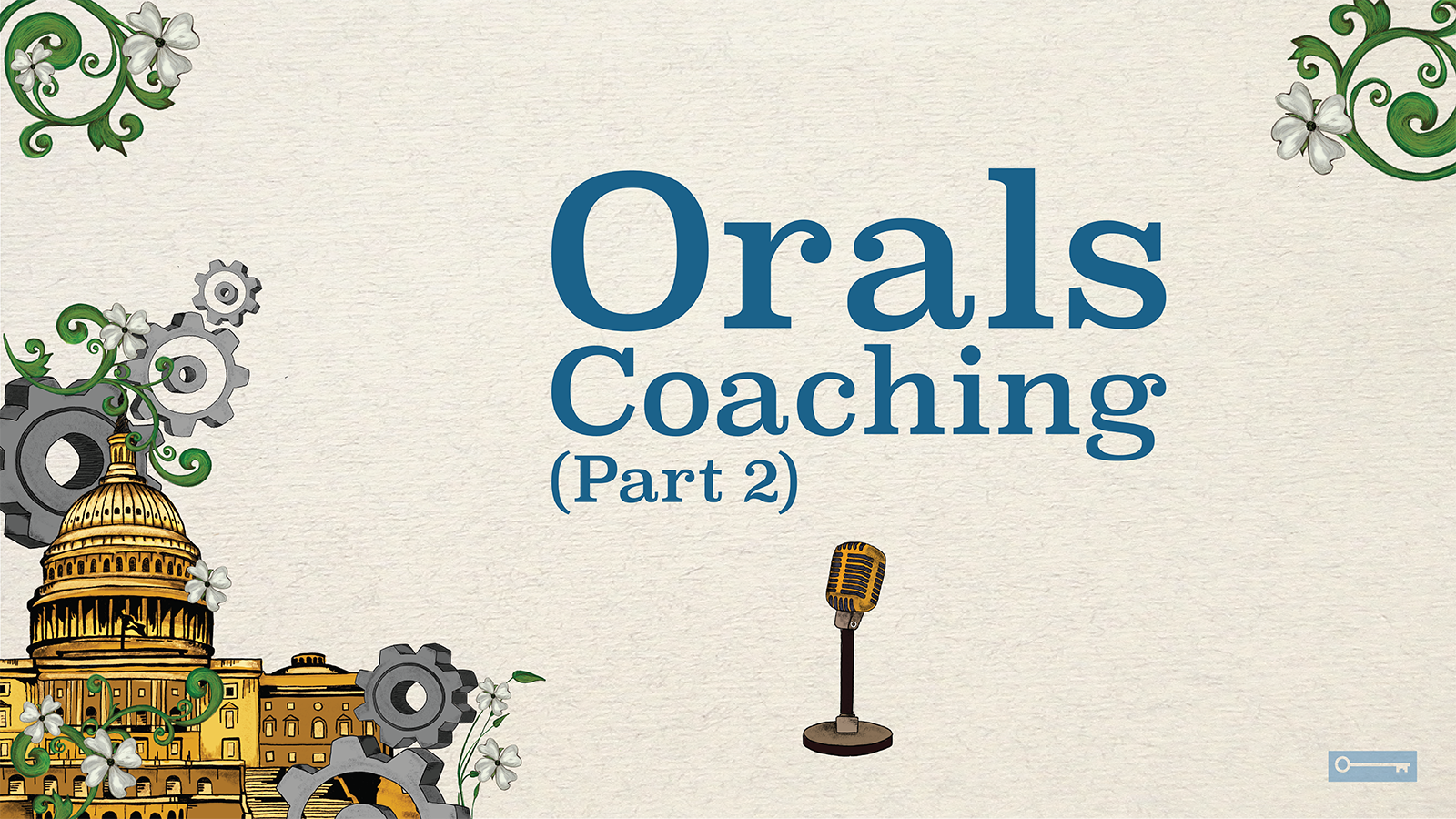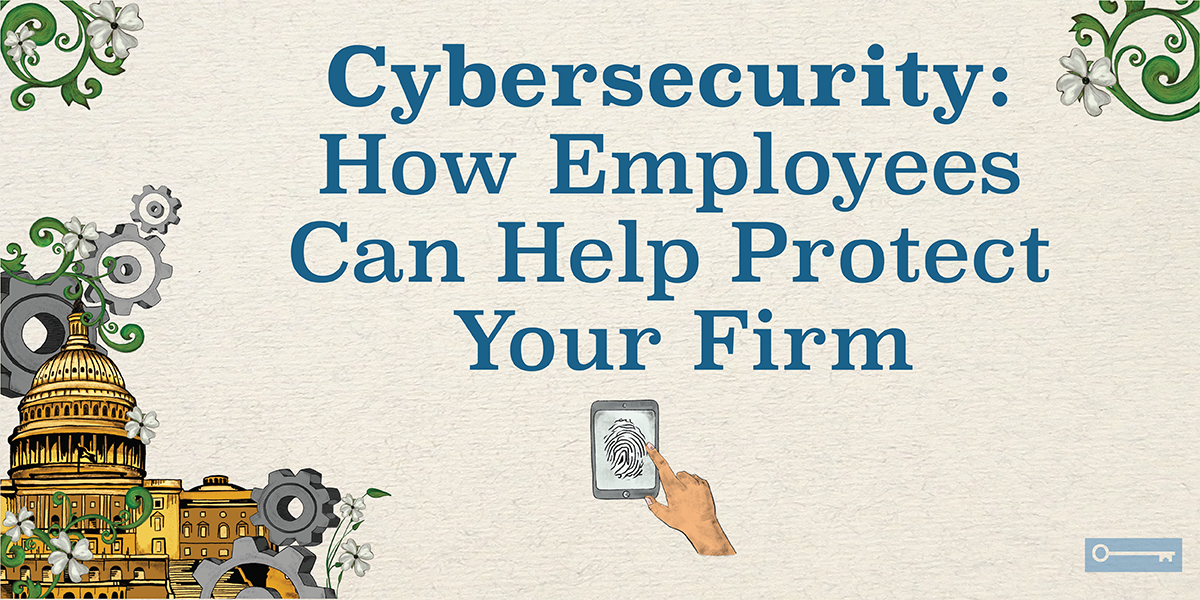The number of bid protests filed with the GAO has risen steadily over the past 10 years and GAO statistics show the likelihood of achieving some success is about 45%, meaning bid protests are effective almost half the time.
Learn how you can proactively protect your proposal in the pre-award phase, red flags to watch for in the post-award phase, and when to engage legal intervention to defend your award.
Guest: Christian Curran, Government Contracts Attorney, Crowell & Moring LLP
Click the play button to listen to the episode below. You can also listen on Apple I-Tunes or Soundcloud.
Prefer to read? Here's the transcript.
Ray Thibodeaux: Welcome to Keys to Winning, a podcast where we talk about government contracting topics, such as proposal development, business development, win strategies and more. Keys to Winning produced by AOC key solutions, a leading bid and proposal development firm gives you a chance to learn from leaders and experts in their fields. I'm Raymond Thibodeaux, today's host of Keys to Winning.
Ray Thibodeaux: I'd like to welcome our guest Christian Curran, an attorney in the government contracts group at the Washington D.C. law firm, Crowell and Moring. Christian advises clients in all facets of procurement law and has extensive experience in bid protests litigation. Hi Christian. Thanks for being on the podcast.
Christian C.: Thanks for having me on today Ray.
Ray Thibodeaux: Well, it seems that the proposal world appears to be increasingly litigious, maybe a result of intensifying competition in federal regulations. The number of bid protest cases filed with the GAO has risen steadily over the past 10 years, coming to about 2,600 cases in 2017, nearly double the number 10 years ago.
Protests have become almost a routine phase of the acquisition process. In this podcast, we tap into Christian's experience and insight as a bid protest litigator to find out what contractors can watch out for during procurement to avoid potential protests, pitfalls. First things first, let's talk about the solicitation review. What do we need to look for in an RFP that essentially could be fertile grounds for protests?
Christian C.: Well, that's a good question Ray. It's important for offerers to do a very thorough initial review of the RFP to figure out a number of things, such as whether there are any ambiguities, overly restrictive provisions that they think might prevent them from putting in a responsive bid or areas where clarification is required so that you can resolve all of these issues prior to bid submission.
Many times offerers might ignore something like this that comes up in an RFP thinking they can just file a protest after award, but that's a mistake. The bid protest regulations require any issues like this arise from the terms of an RFP be raised prior to the submission of bids. So, common examples are requirements that are clearly ambiguous, evaluation criteria that you think might overly restrict your ability to provide a responsive bid, evaluation criteria that you think are missing or that should otherwise be included based on what the RFP is trying to procure and regulations that relate to that and other things of that nature.
Christian C.: Many of these types of issues can and should be raised really in a pre-award Q&A context and that really may obviate the need for a protest, but if your questions to the agency are not resolved prior to submission of bids, you absolutely have to protest by that time. And the same holds for issues first introduced as part of an amendment to the RFP. Any problems with the terms of that amendment must also be raised prior to submission of bids or the response deadline in the amendment. And if you miss those deadlines then you're going to have waived your right to protest this issue in a post award context. Now, with that in mind, there are a few important caveats. First, if there are changes to solicitation requirements made after the submission of your final proposal, well then you can't put in a protest prior to the submission of your proposal, because it's already in, right?
Christian C.: So, in that case GAO has held then and recently changed the rules on this that you just have 10 days from notice of that change or from when you knew or should have known of the change to put in a protest on that issue. Now, this type of situation is really exceedingly rare, but an example of where this might come up is if the agency changes its solicitation provision dealing with how requirements will be incorporated into the resulting contract after the bids have been submitted. So, offerers just need to keep their eye out for something like this and know that if that does pop up and it seems odd, you need to get your protest in within 10 days. The second thing to look for is what's called a latent ambiguity. These may not be protested pre award and latent ambiguity as opposed to patent ambiguity is an ambiguity that is not apparent on the face of the RFP document, but arises later where maybe the agency applies the terms of the RFP in an unexpected way that is arguably inconsistent with the face of the RFP itself.
Christian C.: So, if you can show that there are two reasonable interpretations in light of the RFP as a whole, that being yours and the agencies, you could provide ... That could provide you with ammunition for successful latent ambiguity challenge in the post award context. Oftentimes this is made an alternative to a post award challenge to the agencies that overall application of evaluation criteria, but even though this is an acceptable post award challenge, it doesn't mean you should roll the dice. If you have an issue that you think could be problematic just from your facial review of the solicitation, you really should just get that in prior to the submission of bids.
Ray Thibodeaux: So, it sounds like what you're saying is that if you see something that is a potential protest issue, get it in as soon as you see it? There's no reason to wait.
Christian C.: Absolutely. Or at least get your questions in. If you are unclear about a terminal solicitation, don't wait until the week before bid or the day before. Get your questions in as soon as possible, because that then will give you the answers to those questions. May not provide you with satisfaction and that gives you maximum time to get that protest in prior to the submission of bids.
Ray Thibodeaux: And what are some of the most common grounds for protest and how can we, I like to say bulletproof, but I'm not really sure if that's the right way to say it, but how can offerers attempt to address these issues proactively?
Christian C.: Sure. Well, I don't know if there's any such thing as a completely bulletproof proposal, but in the post award context, the most common grounds that offerers kind of need to watch out for really revolve around improper agency evaluations or actions by the agency during the evaluation process. For example, protesters will often argue that an agencies technical past performance or cost price evaluation was flawed. And these grounds are usually based on the agencies alleged failure to adhere to or properly apply the state of evaluation criteria or to the agencies alleged unequal application of those criteria. And that's all based on really the reasonableness of the agency's actions. Protests challenging the agencies conduct during discussions are also very common protest ground. That being alleging the discussions were either improper or unequal depending on the situation. And lately we also see a lot of protests based on organizational conflicts of interest. The main organizational conflicts of interest being unequal access to information, bias ground rules or impaired objectivity.
Christian C.: And finally in best value procurements, it's very common to see challenges that the agency improperly paid a price premium and otherwise failed to document that or failed to properly conduct a cost technical trade off. Now, the difficult part of this question is that so much of what we see in the protest context comes back to whether the agency's evaluation was reasonable and in that regard it's somewhat out of an offerers hands upfront as to how to defend against something that you're not responsible for. For example, if the agency improperly evaluates your costs or technical proposal, there's nothing you can do about that as long as your proposal complies with the terms of the solicitation. And that brings me to what I think is the most important point here and that's the only thing that an offerer really has control over is their own proposal.
Christian C.: And in that sense, the best defense to a potential protest is to ensure that your proposal is compliant with the terms of the RFP. And this is something that I understand that your team at Key Solutions often helps with from a technical compliance perspective. From a substantive perspective, it's important for offerers to know that they need to have appropriately responded to all RFP requirements. And as I mentioned a little bit earlier, if there are any questions or clarification's necessary to ensure that you understand what you need to provide, you have to address those issues prior to the submission of your bid and should do so through a Q & A, potentially a pre award protest if you have to go there. But the point of that is being proactive at the pre-submission stage to ensure that you properly understand the requirements and how you're going to respond to those requirements is really critical to ensuring that you don't make a fundamental mistake in compiling your bid.
Christian C.: Another thing that offerers sometimes overlook is how evaluation factor ratings should play into their proposals. For example, if a bid is being evaluated in a low price technically acceptable basis, or if it's in the best value context, but cost is the most important or a very important factor of that analysis, then you're obviously going to need to make sure your proposal is tailored to reflect that. In that case, you don't want to propose a Cadillac solution when the Chevy would do. Conversely, if cost is the least important consideration, then you may have some room to put some additional bells and whistles on your technical approach. So, companies really need to understand in that context that viewing how the evaluation criteria are going to be applied is critical to understanding how you want to shape your proposal and ensuring that you're making the appropriate business decisions and tradeoffs there.
Ray Thibodeaux: Proposal teams sometimes grouse about an RFP that favors, say an incumbent or a specific competitor. In your experience, is there some truth to that? And to the extent that it is true, what can companies do to level the playing field?
Christian C.: Well Ray, there are certainly instances where an RFP might be read to favor one offerer or another, and it's also commonplace for incumbents to generally get what's called the natural advantage of incumbency since by nature of being an incumbent you just may be in a better position to understand the agency's needs and the agency may prefer certain features of an incumbent solution. But these things by themselves are not usually enough to lodge a successful pre award protest, absent evidence of some sort of blatant bias or improper conduct by the agency. It's very rare that that is the case. It's important to know that agencies are allowed to tailor a solicitation in particular method or specification, but as long as the requirements are reasonable to meet the agency's stated needs. So, one way you can successfully challenge RFP terms in this context is to argue that the requirements are not necessary to meet the agency's minimum needs.
Christian C.: And this is essentially the same as arguing that the provisions are unduly restrictive of competition. It's again important to know that this type of protest ground must be lodged prior to the submission of bids. You can't make that argument post award. So, if you're reviewing an RFP and you think there are lots of restrictive provisions that are really put in there to favor the incumbent or that are just unnecessary based on the agency’s stated goals and needs, you can protest that prior to the submission of bids in an attempt to get the agency to level that out in the RFP.
Ray Thibodeaux: Good to know. As you had mentioned before, the Q & A process is a venue for clearing up vagaries or inconsistencies in the solicitation, but even the Q & A process has some risks it seems like. How strategic do companies need to be in framing their questions in such a way that it doesn't divulge elements of your solution or your approach?
Christian C.: Well, certainly you need to be careful in how you frame the question, but in my experience, if you frame the question in a way that's based on how a requirement applies or whether a provision has multiple interpretations and are just focused on the actual provision itself doesn't necessarily give away your proposal and a lot of times you'll even see multiple questions on the same topic from different offerers. So, chances are if you've got a question on something, a lot of people have the same question. So, of course when framing the question you don't need to provide a lot of extraneous information that might kind of divulge your approach there and you don't need to lay out unnecessary details about why you're asking and how it will impact your proposal, but you need to ask enough to resolve the ambiguity or the issue so that you can properly understand the requirement and how you will devise an approach to meeting that requirement.
Ray Thibodeaux: This might be off the beaten path, but it's something I'm curious about. I've heard attorney's advice their clients, don't answer questions that aren't asked of you. Proposal teams might also heed that advice when developing their responses, but I see one team after another throwing all kinds of freebies into their proposal, technical manuals, QC plans, disaster recovery plans, you name it, which aren't specifically called out in the RFP. If a proposal team offers the government these documents, can the government evaluate them, whether positively or negatively as part of the proposal?
Christian C.: That's a great question Ray, and this is something that comes up a lot, especially in the context of discussions where you have an opportunity to revise any aspect of your proposal as part of a final proposal revision at the conclusion of that process. So, it's really a business decision as to what you provide with your bid, but from a legal perspective, offerers should know that anything you submit could be evaluated by the government and could be used against you.
Practically speaking, this all comes down to introducing risk. Any additional non- required document that you provide or changes you make to your proposal introduce additional risk. As we talked about before from a compliance perspective, it's important to understand what is required and to provide that.
Christian C.: So, in the event you're providing something extra, you need to make sure it's consistent with the other aspects of your proposal and otherwise still complies with the RFP requirements. In the context of discussions, it may be very tempting to provide additional information and make changes beyond the scope of what was asked, but offerers always run the risk that additional changes may make their proposals non-compliant. So, offerers just need to be very careful in that context and really ensure that everything you're providing fits within the RFP and can't be used against you to say that you didn't meet certain requirements, especially when providing additional information as part of your original proposal and in the discussions context as well.
Ray Thibodeaux: As I understand it that GAO will entertain early requests for dismissal to try to dispose of protest over areas such as lack of GAO jurisdiction, untimely protest, fails to state a valid basis for protests and so forth, even before considering the merits of the case. That probably accounts for a significant percentage of bid protest dismissals, but of those that survive the quick kill or the request for dismissal, GAO statistics show the likelihood of achieving some success is about 45%, meaning bid protests are effective almost half the time. That might look like a low effectiveness rate, but is it?
Christian C.: So, you're definitely correct, Ray, that GAO will entertain early requests for dismissal and this mechanism can be very effective in the early stages of a protest, but dismissals of this nature are normally only successful where there's a really a glaring procedural defect, right? Meaning that the protest is untimely, it's outside GAO's jurisdictional threshold, it's a challenge to contract performance, not the procurement or it's based on entirely on speculation with no grounding and any facts whatsoever. But even in the event of the entire protest isn't dismissed if you don't have one of those glaring errors. For awardees and agencies, dismissal can be a great tool used to weed out issues that are not meritorious and to slim down grounds to get to the really meritorious grounds or protest.
Christian C.: Now, the statistics regarding effectiveness rate, taking into account both sustain protest and protest work corrective action is taken and that essentially means that as you pointed out, almost half the time a protest results in either corrective action or sustain, and I think that demonstrates the protests are pretty effective. The sustained rate by itself is usually a bit lower. In FY 2017, the sustain rate was only 17% and that was down from 23% the year before. Now, this doesn't take into account instances where an alternative dispute resolution was used or corrective action was taken in response to outcome prediction that occurred towards the end of the protest, so it's kind of hard to nail down how many of these went through to that point before some sort of corrective action was taken. But overall I think GAO has demonstrated itself to be an effective forum, given that you're getting some sort of meaningful remedy in about half of cases.
Ray Thibodeaux: Let's say you win an award and someone else protests it, when is it time to call in attorney's to intervene?
Christian C.: So, there's no one size fits all answer when it comes to intervention, but I think the general rule is to act fast. As we just talked about, motions to dismiss are often filed very early in the case, so if you don't intervene very quickly you could miss weighing in on that. You could also miss an early corrective action, and I've seen in some instances even with a quick intervention request filed within a couple days of notice of the protest, agencies have already begun the corrective action process. So, even if you intervene just so your council can monitor the protest, it'll give you peace of mind and an ability to weigh in if it looks like it's necessary. Given the compressed timeframes of the GAO protest, you're really going to want to act fast that you don't miss out on the action and lose an opportunity to help defend your award.
Ray Thibodeaux: Very good advice. Thank you Christian for being on the podcast.
Christian C.: Thank you, Ray, for having me and I very much appreciate it.
Ray Thibodeaux: I'm Raymond Thibodeaux and this has been Keys to Winning, from AOC Key Solutions Incorporated or KSI, a consulting firm that has helped companies across the country win billions of dollars in federal contracts. Learn more at https://www.aockeysolutions.comor follow us on LinkedIn. Be sure to subscribe for more podcasts in this series
ABOUT KEYS TO WINNING:
Keys to Winning is a podcast that shares practical advice for GovCon professionals from industry experts. Topics covered include Proposal Development, Government Contracting, VOSBs, WOSBs, and more. Episodes are 15 minutes or less and are posted bi-weekly on Thursday morning. The podcast is hosted by Raymond Thibodeaux, a Senior Proposal Specialist with AOC Key Solutions.







